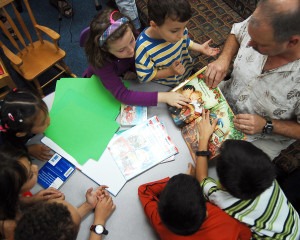
It doesn’t take long for children to develop good or bad feelings about themselves.
A just-published study by researchers at the University of Washington’s Institute for Learning and Brain Sciences concluded that children have strong positive or negative self-esteem by age 5.
Great news for those who feel positive; not so good for those who suffer from a more negative personal view.
But parents know that even well-adjusted children can have moments of doubt about their appearance, their intelligence or their ability to make friends.
“Who hasn’t felt like less than adequate at some point in our lives,” says Cathy Miller, a former foster mother who now serves as national spokeswoman for the UglySnuglies line of educational stuffed animals that help children discover they don’t have to be perfect to be loved.
“Being a foster parent taught me a true appreciation for how tender young people are and how easily and drastically their emotions can be damaged. I found that sometimes the simplest solutions can help children build strength, self-reliance and confidence.”
Whether it’s the successful feeling that comes from learning to read or the fears that are associated with being bullied at recess, children experience numerous positive and negative events that play a role in making them feel better or worse about themselves.
There are a number of ways adults can help children establish a positive self-esteem, Miller says, such as:
- Praise them. Make sure when children do something well that you praise them for their good work. This can help their confidence and encourage them to do more.
- Let them help. Even a preschooler can do a few simple chores around the house, such as carrying their dirty clothes to the hamper or picking up their toys.
- Allow them to make choices. Does the child need a new pair of shoes? Are there two possibilities for dinner this evening? Letting a child make choices, when appropriate, can make them feel more self-reliant and valued.
Miller grew up in a family with eight children and took on duties helping to care for her four youngest siblings. She says many people who raise children discover that a favorite toy, blanket or other object can help children feel more safe and secure – and ultimately better about themselves.
“I think that’s one of the reasons children are drawn to such toys as teddy bears and UglySnuglies,” she says. “For generations, stuffed animals have played a role in making children feel less lonely and frightened when it’s time to turn off the light at bedtime. They can snuggle up with their ‘friend’ and the world doesn’t seem as scary.”
Confidence is also important in improving self-esteem. That’s where the educational aspects of toys come in, Miller says, whether it’s the traditional Lincoln Logs that help stimulate children’s creativity, chemistry sets that allow them to experiment, or board games that teach them how to use strategy.
“Even toys that look like a simple stuffed animal can have a number of educational benefits,” Miller says. “Take one of the UglySnuglies for example, the Unusual Unicorn. It comes with a built-in alarm clock, which makes learning to tell time a fun experience.
“Unusual Unicorn also teaches responsibility as children learn to set the alarm themselves so they don’t get up late. This also teaches a ‘life’ lesson about the importance of being on time.”
Children are like us, she says. As they learn, their confidence builds and their self-esteem rises.
“Because there is research showing our children’s self-esteem is being established even before they start school, shouldn’t we do all we can to make sure their self-esteem is positive?” Miller asks.
“All children deserve to feel good about themselves and to feel confident as they go about their daily lives. This not only allows them to be more productive youth, but arguably impacts the type of adult they will become.”
Cathy Miller, a former foster mother, serves as national spokeswoman for the UglySnuglies (www.UglySnuglies.com) line of educational stuffed animals. She has more than 25 years experience in marketing and sales. Her experience with direct response marketing inspired her to launch You 2 Can Do D.R. Inc. Miller attended Brigham Young University and is a six sigma graduate.








